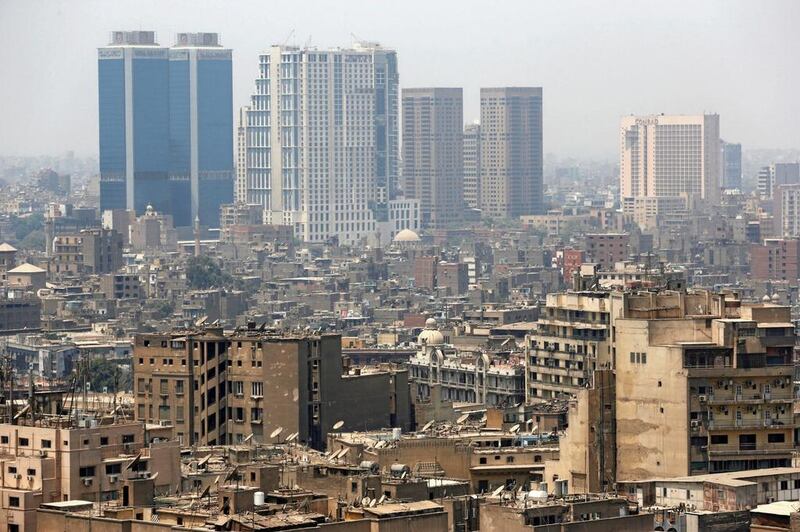Egypt's non-oil private sector economy, which turned the corner in November after more than two years of weakening, ended 2017 with a deterioration in business conditions, according to latest Purchasing Managers’ Index (PMI) survey.
The decline over the fourth quarter of last year as a whole, however, was the slowest in more than two years as signs of economic stability and increased capital investment plans underpinned business confidence during December.
At 48.3 in December, the headline seasonally adjusted Emirates NBD Egypt Purchasing Managers' Index fell from 50.7 in the preceding month , underpinning a modest downturn of business conditions in the Egyptian non-oil private sector. A reading above 50 suggests that the non-oil economy is growing, while a reading below 50 suggests a contraction. The survey is sponsored by Emirates NBD, Dubai's biggest bank by assets, and produced by IHS Markit, a financial information services company.
“Egypt’s PMI reading dipped back below the neutral 50 mark once again in December, dashing hopes that the positive November reading signalled a lasting return to expansion in the Egyptian non-oil private sector," Daniel Richards, a Middle East and North Africa economist at Emirates NBD said.
____
Read More:
[ Egypt PMI rises in November, reversing 25 months of decline ]
____
"Nevertheless, the pace of contraction was gentler than seen over most of the past several years, future sentiment remains high, and job shedding slowed to a 28-month low, boding well for 2018.”
Egypt, the Arab world's most populous country, has struggled to kick-start its economy since the 2011 popular movement that ousted former president Hosni Mubarak.
The government has implemented a raft of economic reforms including the devaluation of the country's currency and a reduction in energy subsidies. Egypt is working with the IMF to improve its economy and increase the level of much needed foreign direct investments in the country.
The IMF in November said that it has agreed to disburse a US$2 billion loan after a review of Egypt’s economic reforms, which will take the total amount disbursed to $6bn since the three-year $12bn aid package was announced in 2016.
According to the PMI survey, the contraction registered throughout the final quarter of 2017 was the slowest recorded in over two years, and the rate of deterioration was weaker than the gauge’s historical average since early-2011.
Managers polled for the survey cited a deterioration in inflows of new business from both foreign and domestic markets, with both new export orders and total new business contracting in December.
On a more positive note, the rate of job shedding was the slowest seen for 28 months during December, and signalled only a marginal fall in employment, according to the survey.







